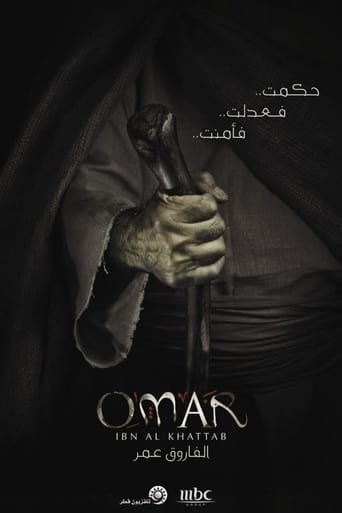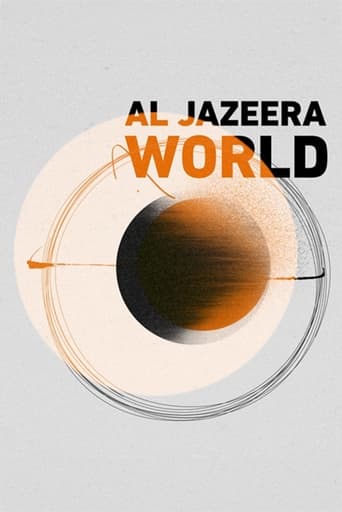Best Qatari documentary series
A curated collection of popular documentary series from Qatar.

Al-Nakba (The Catastrophe) (2007)
Al-Nakba (The Catastrophe) (2007)
For Palestinians, 1948 marks the “Nakba” or “catastrophe”, when hundreds of thousands were forced out of their homes. For Israelis, the same year marks the creation of their own state. This four-part series attempts to present an understanding of the events of the past that are still shaping the present.
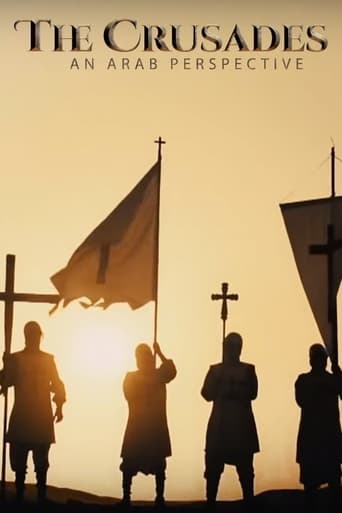
The Crusades, An Arab Perspective (2016)
The Crusades, An Arab Perspective (2016)
The Crusades: An Arab Perspective is a four-part series produced by Al Jazeera English, which presents the dramatic story of the medieval religious war through Arab eyes. The series provides a new perspective on the history of the Crusades for a global, English-speaking audience, that has largely read about or studied the famous struggle from a primarily Christian and Western point of view.
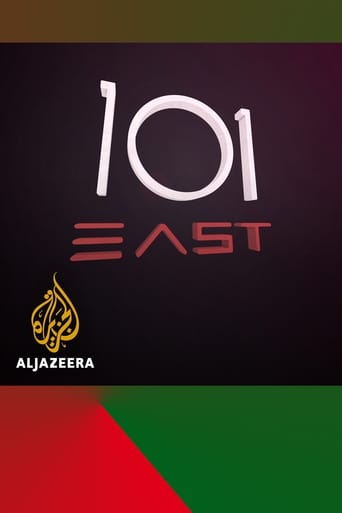
101 East (2007)
101 East (2007)
Al Jazeera's weekly Asian current affairs programme. We cover a dynamic region with diverse cultures and conflicting politics. With special reports, interviews and debates, 101 East tackles the issues that unify and divide Asia.
Al Jazeera Empire (2009)
Al Jazeera Empire (2009)
Empire is a unique programme that reports on and debates global powers on behalf of an international citizen. It does so in a way whereby it questions those geopolitical, geoeconomic, corporate, and other forms of power that influence citizens across borders. Many of those are not held accountable by any one government or any one nation, and so looking at the world as the global village it has become - with its integrated societies - we try to answer the questions on the minds of many of our viewers: why and how does global power act, react? And how does it throw its weight around?
Killing the Count (2014)
Killing the Count (2014)
The story of Count Folke Bernadotte of Sweden and how he rescued concentration camp inmates from Germany during WWII.

The Lobby - USA (2018)
The Lobby - USA (2018)
A four-part undercover investigation by Al Jazeera into Israel’s covert influence campaign in the United States. To get unprecedented access to the Israel lobby’s inner workings, undercover reporter “Tony” posed as a pro-Israel volunteer in Washington. The resulting film exposes the efforts of Israel and its lobbyists to spy on, smear and intimidate US citizens who support Palestinian human rights, especially BDS – the boycott, divestment and sanctions movement. It shows that Israel’s semi-covert black-ops government agency, the Ministry of Strategic Affairs, is operating this effort in collusion with an extensive network of US-based organizations.
The Secret of the Seven Sisters (2013)
The Secret of the Seven Sisters (2013)
On August 28, 1928, in the Scottish highlands, began the secret story of oil. Three men had an appointment at Achnacarry Castle - a Dutchman, an American and an Englishman. The Dutchman was Henry Deterding, a man nicknamed the Napoleon of Oil, having exploited a find in Sumatra. He joined forces with a rich ship owner and painted Shell salesman and together the two men founded Royal Dutch Shell.The American was Walter C. Teagle and he represents the Standard Oil Company, founded by John D. Rockefeller at the age of 31 - the future Exxon. Oil wells, transport, refining and distribution of oil - everything is controlled by Standard oil.The Englishman, Sir John Cadman, was the director of the Anglo-Persian oil Company, soon to become BP. On the initiative of a young Winston Churchill, the British government had taken a stake in BP and the Royal Navy switched its fuel from coal to oil. With fuel-hungry ships, planes and tanks, oil became "the blood of every battle". The new automobile industry was developing fast, and the Ford T was selling by the million. The world was thirsty for oil, and companies were waging a merciless contest but the competition was making the market unstable.That August night, the three men decided to stop fighting and to start sharing out the world's oil. Their vision was that production zones, transport costs, sales prices - everything would be agreed and shared. And so began a great cartel, whose purpose was to dominate the world, by controlling its oil.Four others soon joined them, and they came to be known as the Seven Sisters - the biggest oil companies in the world.
Talk to Al Jazeera (2012)
Talk to Al Jazeera (2012)
Al Jazeera’s flagship interview show. A weekly one-on-one conversation with global leaders, icons, influencers, and alternative voices shaping our times.We also interview the voiceless - individuals who by accident or choice find themselves in extraordinary events. On Talk to Al Jazeera - In the Field
Slavery: A 21st Century Evil (2011)
Slavery: A 21st Century Evil (2011)
In this eight-part series, Rageh Omaar uncovers the truth about the flourishing 21st century slave trade.Today, 27 million men, women and children are held, sold and trafficked as slaves throughout the world.From the sex slaves of Eastern Europe to China's prison labour slaves; from Brazil's hellish charcoal slave camps to entire families enslaved in Pakistan's brick kilns, this series exposes the people behind modern slavery and the companies who profit from it.Weaving the testimony of current and former slaves with investigations into some of the biggest global slave masters, we ask why this age-old evil continues to flourish.
Wukan: After the Uprising (2013)
Wukan: After the Uprising (2013)
China is no stranger to rural uprisings. Tens of thousands of protests erupt across the country each year, many over the illegal sale of communal village land by corrupt local officials. Few demonstrations lead to real change, but in 2011, one community defied the odds.Wukan, a village in China’s southern Guangdong province, captured the world’s attention when it achieved a rare victory.After weeks of noisy protests, a crackdown by local authorities and the death of a leading activist, demonstrators succeeded in ousting the village committee, which had held power for more than four decades. Democratic elections were announced and Wukan made international headlines.Wukan: After the Uprising tells the story of the village’s journey following its extraordinary victory. This four-part observational documentary series looks at the challenges of a community’s transition to democracy, through the eyes of former rebels now entrusted with the task of leading the village and regaining lost land.
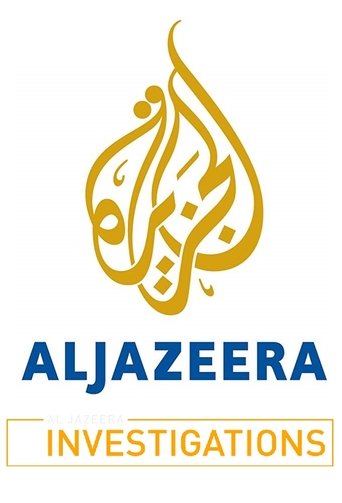
Al Jazeera Investigates (2011)
Al Jazeera Investigates (2011)
Al Jazeera Investigative Unit or I-Unit is the name for journalists from the network’s Investigative Journalism Directorate. Since its formation, the I-Unit’s documentaries have won more than forty awards and over a hundred nominations, including four from Bafta. The I-Unit provides exclusive journalism for Al Jazeera Media Network’s many platforms and its content is translated into multiple languages.
Music of Resistance (2009)
Music of Resistance (2009)
The Music of Resistance is a six-part documentary series that tells the stories of musicians who fight repression and sing about injustices.They are unique musical personalities from some of the world's most troubled areas - what makes them different is their need to communicate their politics through music.They are all ambitious and talented but for them 'making it' is not about diamonds and sports cars - it is about radical political change.
The Arab Awakening (2011)
The Arab Awakening (2011)
As revolution shakes the Arab world, a series of films explore the roots of the uprisings and ask 'what next'?As protest and revolution shake the Arab world, a new series of films documents the Arab awakening.Seven one-hour long programmes offer fresh insights into what happened in the region and why, as well as into the lives unexpectedly altered by events.The first half of the series takes us behind the scenes of the Tunisian and Egyptian revolutions, with access to the people who made them happen. It pieces together the jigsaw of events as they played out in the media, in the corridors of power and on the ground.The second half stands back from events to debate their place in history, global politics and everyday life. We are surprised and entertained to hear those in the know expose how Arab dictators have held onto power for so long. And we are taken into the lives of people across the region, as they reveal their hopes, fears and expectations for the future.
Witness (2009)
Witness (2009)
Documentaries commissioned from independent filmmakers around the world. Bringing world issues into focus with courageous and inspiring human stories.
How to Sell a Massacre (2019)
How to Sell a Massacre (2019)
Rebel Architecture (2014)
Rebel Architecture (2014)
A documentary series profiling architects who are using design as a form of activism and resistance to tackle the world’s urban, environmental and social crises. The series follows architects from Vietnam, Nigeria, Spain, Pakistan, Israel/Occupied West Bank and Brazil who believe architecture can do more than iconic towers and luxury flats – turning away from elite “starchitecture” to design for the majority.
Science in a Golden Age (2015)
Science in a Golden Age (2015)
From satellite-enabled GPS to hi-tech medical procedures – much of today's modern science builds on the work of great thinkers from the past. But while the names Newton, Galileo and Copernicus are well known, just who were the scientists who came before them - in the Golden Age of Islamic Science? Iraqi-born theoretical physicist Jim al-Khalili takes us on a journey of discovery, unravelling the links between the latest scientific developments and the unsung scientific heroes of the past.
The Caliph (2016)
The Caliph (2016)
For almost 13 centuries, from the death of the Prophet Muhammad in 632 to the overthrow of the last Ottoman caliph in 1924, the Islamic world was ruled by a caliph.Translated from the Arabic ‘Khalifa’, the word ‘caliph’ means successor or deputy. The caliph was considered the successor to the Prophet Muhammad.It is a term that has, at times, been abused.In June 2014, a militant group calling itself the Islamic State in Iraq and the Levant (known as ISIL or ISIS) declared the establishment of a caliphate and proclaimed its leader, Abu Bakr al-Baghdadi, a caliph. This proclamation was rejected by the overwhelming majority of the world’s Muslims.ISIL had attempted to appropriate a title imbued with religious and political significance – and in doing so had cast a dark shadow over a rich history.This is the story of the caliph, a title that originated 1,400 years ago and that spanned one of the greatest empires the world has ever known.
Living Islam (2016)
Living Islam (2016)
The War of Lebanon (2002)
The War of Lebanon (2002)
It includes interviews with Lebanese, Arab, Israeli, American and European commentators and politicians, military personnel, militia leaders and civilian victims. The content is based on historical and archived material. This 2-year project cost several hundred thousand dollars and entailed filming over 150 hours of interviews with the major players in the events that took place in Lebanon between 1976 – 1990. Moreover, the program presents in the 1st two episodes the historical background of the major events that influenced the course of the 15-year war.
